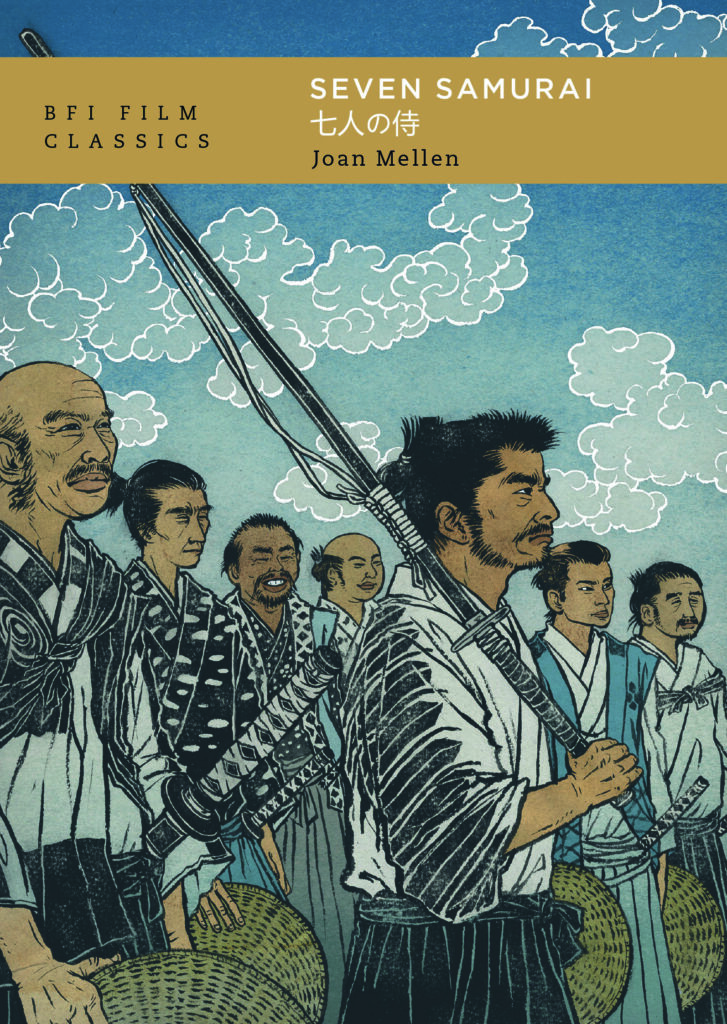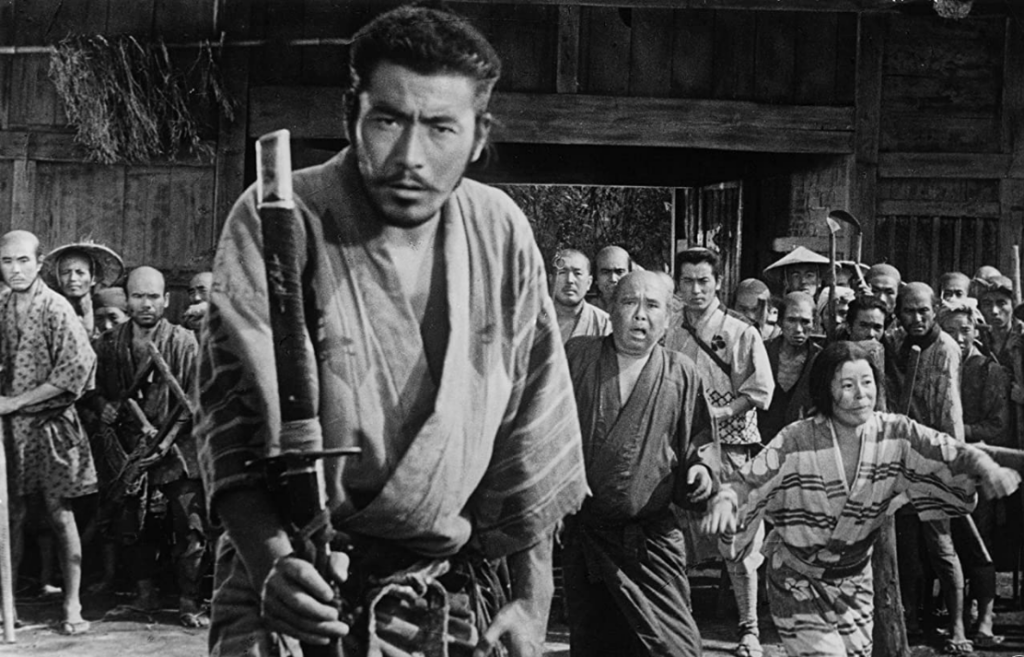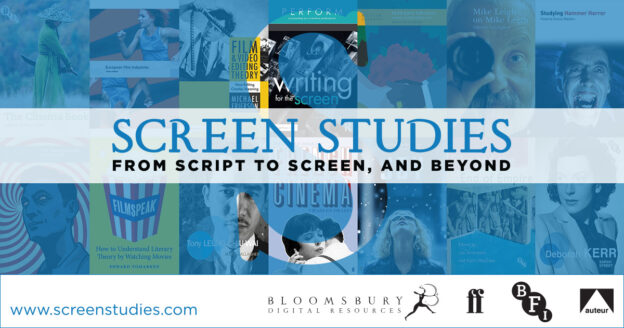
In this book Mellen contextualizes Seven Samurai, marking its place in Japanese cinema, and in director, Akira Kurosawa’s career. Mellen explores the film’s roots in mediaeval history and the film’s visual language.
Cover artwork: Yuko Shimizu
British Film Institute
Pub date: April 28 2022
Paperback 9781839024771: $15.95
British Film Institutes Screen Studies is a dynamic digital platform designed to support moving-image studies. It offers a broad range of content including books, screenplays, overview articles and learning resources from Bloomsbury, Faber & Faber, the British Film Institute, Focal Press and Auteur (LUP). It is an essential resource for academics and students engaged in research and learning in film history, theory, and practice.
Joan Mellen’s study of Akira Kurosawa’s Seven Samurai (1954) treats it both as a portrayal of the cultural upheaval brought on by the collapse of Japanese militarism in the 16th century, but also as a reflection of the sweeping cultural changes occurring in the aftermath of the American Occupation that followed Japan’s defeat in the Second World War.
Seven Samurai may be the greatest action film, a technical masterpiece unmatched in its depiction of movement and violence, but running beneath the sound and fury is a lament for a lost nobility, ‘a dirge for the spirit of Japan,’ writes Joan Mellen, ‘which will never again be so strong.’
Mellen contextualizes Seven Samurai, marking its place in Japanese cinema and in Kurosawa’s film-making career. She explores the film’s roots in medieval history and, above all, the astonishing visual language in which Kurosawa created his elegiac epic.
Seven Samurai is widely considered one of the greatest films of all time, and was voted 17th in the most recent Sight & Sound critics’ poll of all-time best films
New edition of a study of this classic film with a new afterword by the author Joan Mellen
Published to tie in with the 30th anniversary of the BFI Film Classics series, with stunning new cover artwork

One of the most thrilling movie epics of all time, Seven Samurai (Shichinin no samurai) tells the story of a sixteenth-century village whose desperate inhabitants hire the eponymous warriors to protect them from invading bandits. This three-hour ride from Akira Kurosawa—featuring legendary actors Toshiro Mifune and Takashi Shimura—seamlessly weaves philosophy and entertainment, delicate human emotions and relentless action, into a rich, evocative, and unforgettable tale of courage and hope.
In the film Seven Samurai (1954) a whole society is on the verge of irrevocable change. Many people consider this film a major achievement in Japanese cinema, an epic that evokes the cultural upheaval brought on by the collapse of Japanese militarism in the 16th century, echoing the sweeping changes occurring in the aftermath of the American occupation. The plot is deceptively simple. A village of farmers is beset by a horde of bandits, and in desperation the village hire itinerant samurai to protect their crops and their village. In the end the samurai see off the bandits. Together the samurai reflect the ideals and values of a noble class near the point of extinction. The film may be a technical masterpiece, and despite its movement and violence it appears to be a lament for a lost nobility.
The BFI Film Classics series introduces, interprets and celebrates landmarks of world cinema. Each volume offers an argument for the film’s ‘classic’ status, together with discussion of its production and reception history, its place within a genre or national cinema, an account of its technical and aesthetic importance, and in many cases, the author’s personal response to the film.
Purchase “Seven Samurai” (first edition) by Joan Mellen:

